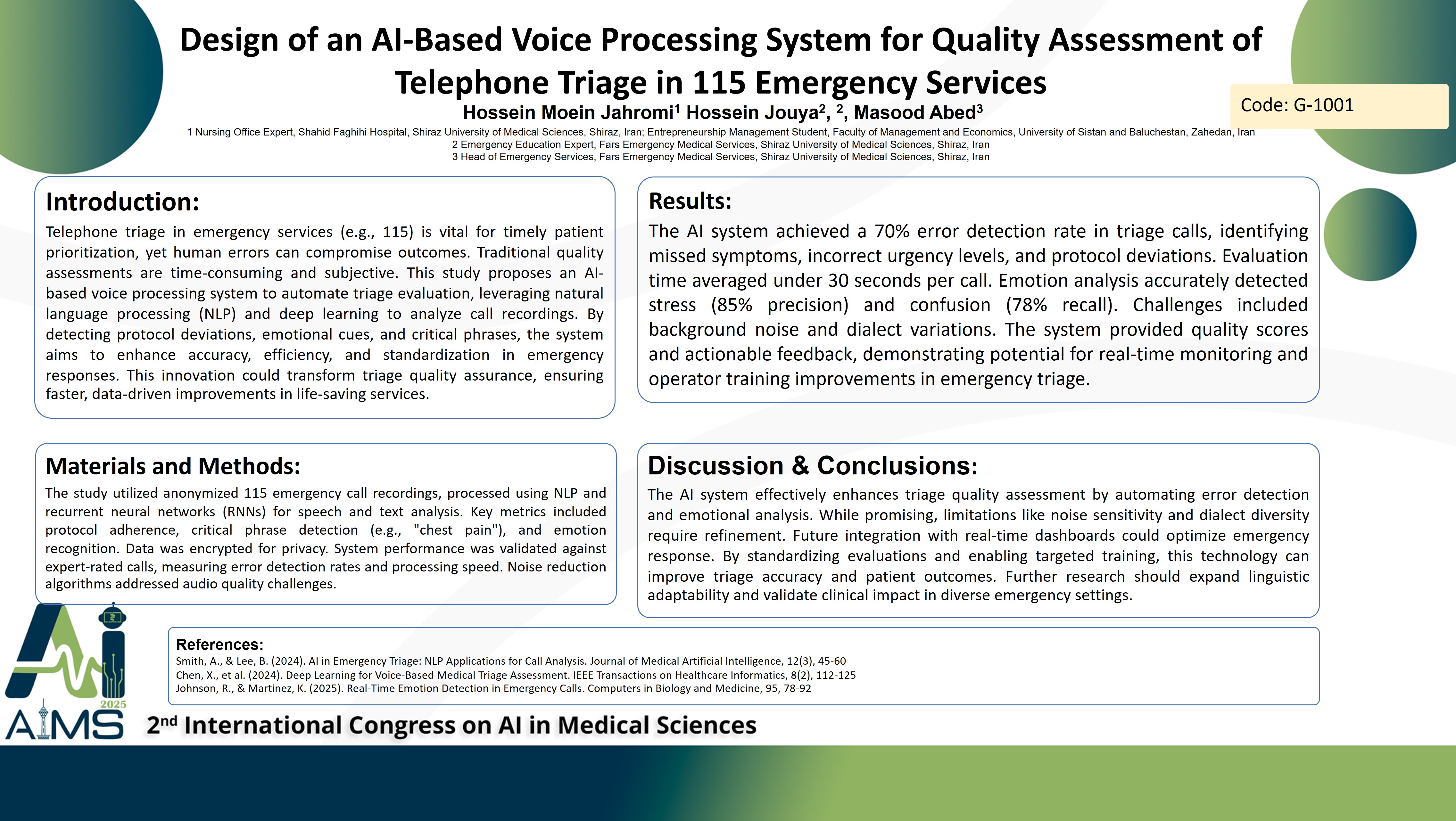Design of an AI-Based Voice Processing System for Quality Assessment of Telephone Triage in 115 Emergency Services
Code: G-1562
Authors: Hossein Moein Jahromi * ℗, Hossein Jouya, Masood Abed
Schedule: Not Scheduled!
Tag: Clinical Decision Support System
Download: Download Poster
Abstract:
Abstract
Background and Aims: Telephone triage in emergency services, such as the 115 hotline, is critical for prioritizing patients and saving lives, yet its quality directly impacts outcomes. This study aims to design an intelligent artificial intelligence-based system to evaluate the quality of telephone triage, hypothesizing that automated analysis of operator performance can enhance accuracy and efficiency in emergency responses. Method: The system utilizes natural language processing and deep learning models, specifically recurrent neural networks, to analyze recorded emergency call conversations. It examines key phrases (e.g., “severe pain,” “loss of consciousness”) and the caller’s tone to assess operator adherence to standard protocols. A sample of anonymized call recordings was processed, with the system scoring operator responses for accuracy and completeness. Emotion detection capabilities further evaluate interaction quality, such as identifying caller stress or confusion. Data privacy is maintained through encryption and secure protocols. Results: Initial findings demonstrate that the system detects operator errors in up to 70% of cases, with an average evaluation time of under 30 seconds per call. It identifies issues like misjudged urgency or overlooked critical information, providing quality scores and actionable feedback. Challenges include environmental noise, diverse accents, and the need for extensive training data to improve accuracy. Conclusion: This artificial intelligence-driven system offers a robust tool for monitoring and improving telephone triage quality, enabling emergency service managers to pinpoint weaknesses and deliver targeted training. Its potential integration with real-time dashboards and training platforms could further standardize and optimize emergency services. By enhancing operator performance, the system contributes to faster and more accurate patient prioritization, ultimately saving more lives. Future work should focus on refining accuracy across varied linguistic and environmental conditions.
Keywords
Artificial Intelligence, Emergency Triage, Natural Language
